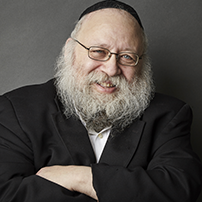
I was pleased to receive your response to the invitation to participate in our classes.
Contrary to what you might think, I was also pleased to read your questions that go to the core of Judaism. I realize that some of your views are diametrically opposite of ours, but I sense in your questions a quest for truth and an intolerance for superficial lip service to religion. I share both your penchant for truth and your impatience for superficiality.
Despite the apparently negative tone of your questions, I prefer Jews and, for that matter all people, who question, argue, debate and, in the end to agree to disagree, over those who are indifferent. You probably heard about the person who was asked, “which is worse, ignorance or indifference?” The answer was “I don’t know, and I don’t care…” Your approach is a refreshing alternative to the mindless and apathetic malaise that has so pervaded the Jewish community and society as a whole.
Concerning your questions, you, of course, realize that an adequate response would require a lengthy essay if not a book. I don’t want to insult your intelligence by giving you some trite answers. Out of respect for you taking the time to write to me, I will attempt to answer your questions. However, I must choose the route of brevity and reserve the “right” to continue this discussion, if you so desire, and amplify my comments. Of course, I would be delighted to have you participate in our classes. We do have a mixed crowd in terms of their level of knowledge and I try to gear the class so that everyone goes away with learning something, whether they agree with it or not.
The basic Jewish belief is that G-d communicated the Torah at Mount Sinai, directly and through Moses, in two forms: written and oral. The Bible, or Written Torah, is clearly and deliberately an incomplete work; complemented by the oral tradition handed also down to Moses by G-d. Without the oral interpretations of the Torah, the Torah is unintelligible and can even be misleading. One example: nowhere does it say what constitutes work that we are forbidden to perform on the Sabbath. The oral tradition does define work. Another example: nowhere does it say how Cain and Seth had children. Who did they marry? The oral tradition provides us with the answer. A third example nowhere does the Torah write that a shofar should be sounded on Rosh Hashanah. Indeed the name Rosh Hashanah does not appear in the Torah. It was transmitted orally. These are just three, out of thousands, of utterly ambiguous statements made in the Torah that were clarified in the oral tradition.
The Written Torah has been compared to the lecture notes of a professor. No student can decipher these notes without hearing the lecture.
Jewish law is therefore based on the combined knowledge of the Written and Oral law (which was ultimately committed to writing in the Talmud and other classical works of Judaism).
In addition, the Torah commanded the rabbis or judges to enact new laws to safeguard the existing ones. Some of the prohibitions against various mixtures of milk and meat are clearly not in the Bible; nor has anyone ever made that claim. Not mixing dairy and meat utensils was not part of the Written or Oral tradition. It is clearly of rabbinic origin.
Is it G-d’s will that we abide by the rabbinic extensions of the law? The answer is that it is no different from the Biblical command to honor our parents. If my mother tells me to help her clean her house, when I do so I am clearly conforming to the Biblical command of honoring my parent, although nowhere does it state in the Torah that one is obliged to clean a mothers’ home. These answers, I know, raise new questions, but I think I have to leave those for a future occasion.
The short definition of chosen people is that at Mount Sinai, G-d chose one nation for greater responsibility. They were chosen to always be around so that they can fulfill their special mission. G-d had a plan for the world. He wanted us to make an imperfect and godless world perfect and hospitable to G-d’s presence. To realize this goal, G-d chose a nation that was forged in the crucible of the twin pressures of Egyptian persecution and assimilation. He then charged them with the mission, not to convert everyone to Judaism, but to be the beacon of light that inspires others to make the world a civilized world. Towards that end, G-d gave us greater responsibilities and commandments that make everything we do revolve around sensitivity to G-d and humanity.
The age of the world is an issue of either secondary or tertiary importance to Judaism.
Moreover, science is not about certainty. It is about searching for the truth. Most, if not all credible scientists are humble enough to admit that their theories are not necessarily facts; although in the absence of a better theory their theories are recognized as if they were facts until it can be proven otherwise. To a certain extent, science is also based on faith and accepting certain axioms that may or may not be true. One can choose to believe in a theological version of creation and not be a mindless and irrational person even if it is not in vogue with the current scientific consensus. Especially in the twentieth century did science recognize that there is much more that is unknown than we could ever have imagined. The issue of the age of the world or the origin of the species is in the category of extrapolation and speculation. No one has ever witnessed macro-evolution in a test tube. I have no problem with someone believing in evolution, if they are willing to accept that it could only have occurred with a Divine hand guiding it along. Many in the scientific community are baffled at the mathematical improbability of it occurring without some outer force that manipulated it. And while evolution must have a belief in a Higher force to make it tenable and statistically plausible, the belief in G-d as Creator does not need evolution to make it reasonable.
On the issue of kosher supervision, I share with you some of the frustration with the commercialization of Kashrut. In an ideal world, if the community believes that it is a mitzvah to ensure and promote Kashrut, it should pay for the thousands of rabbis and mashgichim who ascertain and supervise these products. Alas, we are not yet living in a perfect world and the Jewish community places more emphasis on funding the education of Jews young and old as well as humanitarian concerns; and even that falls woefully short of the mark.
In conclusion, my remarks proved to be lengthier than I anticipated, and I hope I haven’t bored you with them. I look forward to hearing from you. And again thank you for taking the time to write.


